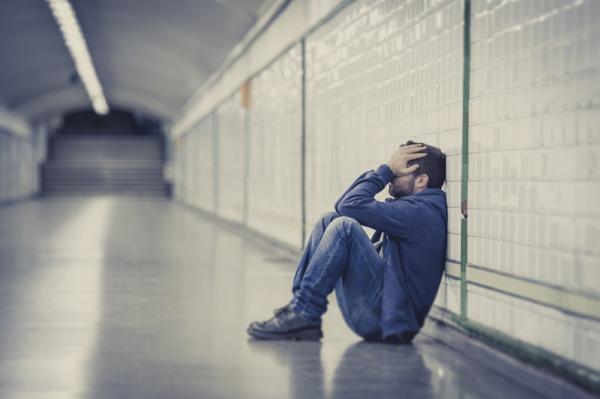Fear of walking is a mental health disorder that negatively affects the quality of life of people who suffer from it. This disorder can have various causes, from traumatic experiences to genetic, social aspects and other mental health problems.
In general terms, the fear of walking and falling harms many of the social, family and work activities that a person can have in their daily life. The presence of an irrational fear is not usually understood by other people and serious problems occur in the creation of social ties. In this PsychologyFor article we will talk about ambulophobia (fear of walking): what it is, causes, symptoms and treatment
What is walking phobia?
The phobia of walking (or ambulophobia) is a mental health disorder which is characterized by the presence of a irrational and excessive fear of walking in public places. On the other hand, ambulophobia constitutes an anxiety disorder that can be included within the group of specific phobias defined by the DSM-V.(1) because of its qualities.
However, in order to make an accurate diagnosis, it is necessary that a series of diagnostic criteria be met:
- Persistent fear and/or anxiety in the face of a specific object or situation.
- Avoidance of the situation or object.
- Fear disproportionate to the real danger posed by the object or situation.
- Duration of six months or more.
- Deterioration of social, work and family relationships.
- The alterations cannot be explained by the presence of other mental disorders and/or the ingestion of toxic substances or medications.

Why am I afraid to walk?
The causes of fear of walking can vary depending on the person. Next, we will talk about the main reasons:
- Social factors : facts of insecurity, lack of tranquility and distrust of society can be conditions for ambulophobia.
- Environmental factors : Traumatic experiences within the family affect the development of fear of walking. In this sense, the transmission of fears about public places by family members makes up this pathology.
- Genetic factors : The alteration of genes transmitted by genetic inheritance also interferes with the responses produced by the central nervous system to stimuli that come from outside. In this sense, excessive activity of neuronal connections interferes with the fear of walking. On the other hand, if one of the person’s parents has been diagnosed with ambulophobia, there is a high probability that the same pattern of behavior will be repeated.
Symptoms of ambulophobia
Ambulophobia has some symptoms that allow it to be identified, both physical, emotional and/or behavioral. We show them to you below:
- Intense fear of walking in open and public places.
- Feelings of insecurity.
- Catastrophic ideas about walking
- Difficulty facing social, family and personal activities.
- Excessive sweating.
- Shortness of breath.
- Tremors.
- Nausea and vomiting.
Despite presenting any of the symptoms mentioned, it is important that the diagnosis of ambulophobia be made by a mental health professional. Therefore, if the symptoms are severe, you should go to a mental health center to address this phobia.
How to lose the fear of walking
The fear of walking can be overcome by carrying out specialized treatments and guidelines in the remission of typical symptoms. Next, we explain the most effective treatments to lose fear and insecurity when walking.
Psychological therapy
First of all, one of the most effective ways to treat ambulophobia is to undergo psychological therapy. The assistance from a mental health professional can provide tools that help identify the thoughts, feelings and emotions that occur at the idea of walking.
On the one hand, cognitive behavioral therapy works on present problems through techniques such as gradual exposure to feared stimuli, body relaxation, among others. On the other hand, psychoanalysis is a type of therapy that tries to resolve the fear of walking based on the memory of childhood situations that are related to the current problem. In this sense, the person can make other decisions when faced with the fear of walking.
Psychiatric medication
The anxiolytics reduce anxiety levels that occur in ambulophobia, since they intervene on the connections produced in the central nervous system. However, their intake must be supervised by a specialized mental health professional.

This article is merely informative, at PsychologyFor we do not have the power to make a diagnosis or recommend a treatment. We invite you to go to a psychologist to treat your particular case.
If you want to read more articles similar to Ambulophobia (fear of walking): what it is, causes, symptoms and treatment we recommend that you enter our Clinical Psychology category.
- American Psychiatric Association (2013). Diagnostic and specific manual of mental disorders (5th edition). Arlington: Panamericana Medical Publishing.
Bibliography
- Delgado Reyes, AC, Sánchez López, JV (2019). Fear, phobias and their treatments. Electronic Journal of Psychology Iztacala, 22 (2), 798-833.









